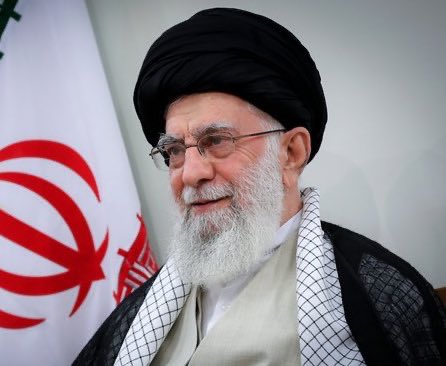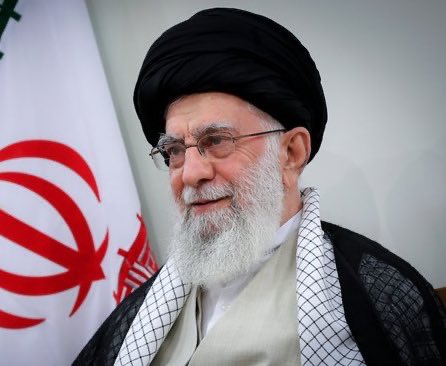
Iran’s Stance on Uranium Enrichment: A Firm Position Against Negotiation with the U.S.
In a significant development in international relations and nuclear policy, Iran has firmly stated that its capability to enrich uranium is non-negotiable in discussions with the United States. This announcement, made public by BRICS news on Twitter, underscores Iran’s strong position regarding its nuclear program, which is closely monitored by the international community due to concerns over the potential development of nuclear weapons.
Understanding Uranium Enrichment
Uranium enrichment is a crucial process in the production of nuclear fuel and, potentially, nuclear weapons. It involves increasing the percentage of uranium-235 isotope in uranium, which can be used for energy generation and, in higher concentrations, for making nuclear arms. Iran’s advancements in uranium enrichment have been a point of contention in its relations with Western countries, particularly the United States.
Iran’s Nuclear Program and Its Implications
Iran’s nuclear program has been a subject of intense scrutiny since the early 2000s. The nation asserts that its ambitions are purely for peaceful purposes, aiming to generate electricity and support medical research. However, many nations, particularly the U.S. and its allies, fear that Iran’s enrichment capabilities could lead to the development of nuclear weapons. This fear has led to a series of diplomatic negotiations and sanctions, including the Joint Comprehensive Plan of Action (JCPOA) established in 2015, which aimed to limit Iran’s nuclear activities in exchange for sanctions relief.
The Non-Negotiable Stance
Iran’s recent declaration regarding uranium enrichment highlights its unwavering commitment to maintaining its nuclear capabilities. The Iranian government has made it clear that it will not entertain discussions that seek to limit or dismantle its enrichment program. This stance is rooted in national pride and a desire for technological independence, as well as the perception of sovereignty over its nuclear rights as a signatory of the Treaty on the Non-Proliferation of Nuclear Weapons (NPT).
- YOU MAY ALSO LIKE TO WATCH THIS TRENDING STORY ON YOUTUBE. Waverly Hills Hospital's Horror Story: The Most Haunted Room 502
The Impact of U.S.-Iran Relations
The relationship between Iran and the United States has been fraught with tension, particularly following the U.S. withdrawal from the JCPOA in 2018 under the trump administration. This withdrawal led to the reimposition of severe economic sanctions on Iran, exacerbating the situation and leading to increased hostility. Since then, Iran has gradually ramped up its uranium enrichment activities, moving beyond the limits set by the JCPOA.
The current administration in the U.S. under President Biden has expressed a desire to return to negotiations and revive the JCPOA. However, Iran’s firm stance on uranium enrichment complicates these efforts. The Iranian leadership perceives any attempt by the U.S. to negotiate on this matter as an infringement on its rights and interests.
International Reactions and Future Implications
Iran’s assertion has garnered various reactions from the international community. Countries that have historically supported Iran, such as Russia and China, may view this as a reaffirmation of Iran’s right to pursue its nuclear program. Conversely, Western nations, particularly those in the EU and Israel, are likely to interpret this statement as a significant barrier to diplomatic resolutions.
The implications of Iran’s position on uranium enrichment extend beyond its borders. The country’s nuclear ambitions could prompt neighboring states to reconsider their own defense strategies, potentially leading to an arms race in the Middle East. Additionally, the geopolitical landscape may shift as countries align themselves with either Iran or the U.S., affecting global power dynamics.
Conclusion
In summary, Iran’s firm statement regarding its uranium enrichment capabilities signals a critical juncture in U.S.-Iran relations and the broader discourse on nuclear proliferation. As the international community grapples with the implications of this stance, it is essential to monitor the developments closely. The potential for diplomatic resolution remains, but Iran’s non-negotiable position on uranium enrichment poses significant challenges that will require careful navigation by all parties involved.
In the coming months, the reactions from the U.S. and other international actors will be pivotal in shaping the future of Iran’s nuclear program and the stability of the region. As discussions continue, the focus will likely remain on finding a balance between national security interests and diplomatic engagement, with the hope of preventing escalation and promoting peace in a volatile geopolitical landscape.

JUST IN: Iran says its ability to enrich uranium, which is used to make nuclear weapons, is not up for negotiation with the US. pic.twitter.com/ECV3XN9i4j
— BRICS News (@BRICSinfo) April 16, 2025
JUST IN: Iran says its ability to enrich uranium, which is used to make nuclear weapons, is not up for negotiation with the US.
In recent developments, Iran has taken a firm stance regarding its nuclear program, stating that its capability to enrich uranium—a key component in the creation of nuclear weapons—is not up for discussion with the United States. This announcement comes amid ongoing tensions and complex negotiations surrounding Iran’s nuclear ambitions. What does this mean for international relations, regional stability, and global security? Let’s dive deeper into this pressing issue.
Understanding Iran’s Nuclear Enrichment Program
To grasp the significance of Iran’s statement, we first need to understand what uranium enrichment entails. Uranium enrichment is the process of increasing the proportion of the isotope uranium-235 in uranium. This isotope is crucial for nuclear reactors and, more critically, for nuclear weapons. Iran’s ability to enrich uranium has been a contentious point in its relations with Western nations, particularly the United States.
The 2015 Joint Comprehensive Plan of Action (JCPOA), commonly known as the Iran nuclear deal, was designed to limit Iran’s nuclear capabilities in exchange for the lifting of economic sanctions. However, following the US withdrawal from the agreement in 2018, Iran began to ramp up its enrichment activities, leading to heightened concerns among international observers. The recent statement reiterates Iran’s position that its nuclear capabilities are non-negotiable, a sentiment that could further strain diplomatic relations.
The Global Implications of Iran’s Stance
So, what are the global ramifications of Iran’s refusal to negotiate on uranium enrichment? For one, this development could escalate tensions in the Middle East, a region that has long been fraught with geopolitical rivalries. The fear is that a nuclear-capable Iran could trigger an arms race in the region, prompting neighboring countries to pursue their own nuclear programs.
Furthermore, Iran’s stance poses a challenge to the Biden administration, which has expressed a desire to re-enter negotiations with Iran. A hardline approach from Tehran complicates efforts to find a diplomatic solution, potentially leading to a cycle of escalation that could impact not just the Middle East, but global security as a whole.
The Role of International Organizations
International organizations like the United Nations and the International Atomic Energy Agency (IAEA) play a crucial role in monitoring nuclear programs around the world. The IAEA is responsible for ensuring that nuclear materials are used for peaceful purposes. Iran’s insistence that its enrichment capabilities are “non-negotiable” could hinder the IAEA’s ability to conduct inspections and ensure compliance with international nuclear nonproliferation agreements.
If Iran continues to enhance its uranium enrichment capabilities unabated, the IAEA may find it increasingly difficult to verify the nature of Iran’s nuclear activities. This lack of transparency could lead to a loss of trust between Iran and the international community, further isolating the country on the global stage.
Domestic Reactions in Iran
Within Iran, the statement about uranium enrichment has been met with mixed reactions. Some factions see it as a necessary assertion of national sovereignty and a rejection of foreign pressure. Others, however, worry that this approach could provoke military responses or economic reprisals from Western nations.
Iranian leadership faces a delicate balancing act: they must project strength and resolve to their domestic audience while also managing the risks associated with international isolation. The internal political landscape is complicated, with hardliners advocating for a robust nuclear program and moderates pushing for a return to diplomatic engagement.
The US Response and Future Negotiations
The US, under the Biden administration, has been exploring ways to re-engage with Iran on nuclear issues. However, with Iran’s firm stance on uranium enrichment, the path forward appears increasingly challenging. The US has historically viewed Iran’s nuclear program as a significant threat to regional stability and has implemented various sanctions aimed at curbing its development.
Negotiators will need to find common ground and establish a framework that addresses Iran’s security concerns while also ensuring that its nuclear program remains peaceful. This will require a willingness to compromise from both sides, a challenging proposition given the current climate of distrust.
The Broader Geopolitical Context
Iran’s nuclear ambitions cannot be viewed in isolation; they are intertwined with broader geopolitical dynamics. For instance, Iran’s relationships with countries like Russia and China complicate the situation further. Both nations have shown support for Iran in the face of US pressure, providing it with diplomatic backing and economic opportunities.
In addition, the ongoing conflicts in Syria and Yemen, along with Iran’s support for various non-state actors in the region, contribute to a complex web of alliances and animosities. As such, any discussions about Iran’s nuclear program must also consider these broader geopolitical factors.
Conclusion: The Road Ahead
Iran’s declaration that its ability to enrich uranium is non-negotiable marks a critical juncture in international diplomacy. As the world watches these developments unfold, the stakes have never been higher. Finding a peaceful resolution to Iran’s nuclear ambitions requires careful navigation of a multitude of factors, including regional stability, international law, and the geopolitical landscape.
The future of Iran’s nuclear program remains uncertain, but one thing is clear: the implications of its enrichment capabilities extend far beyond its borders. As global citizens, we must stay informed and engaged with these pressing issues, recognizing that the choices made today will shape the world of tomorrow.
